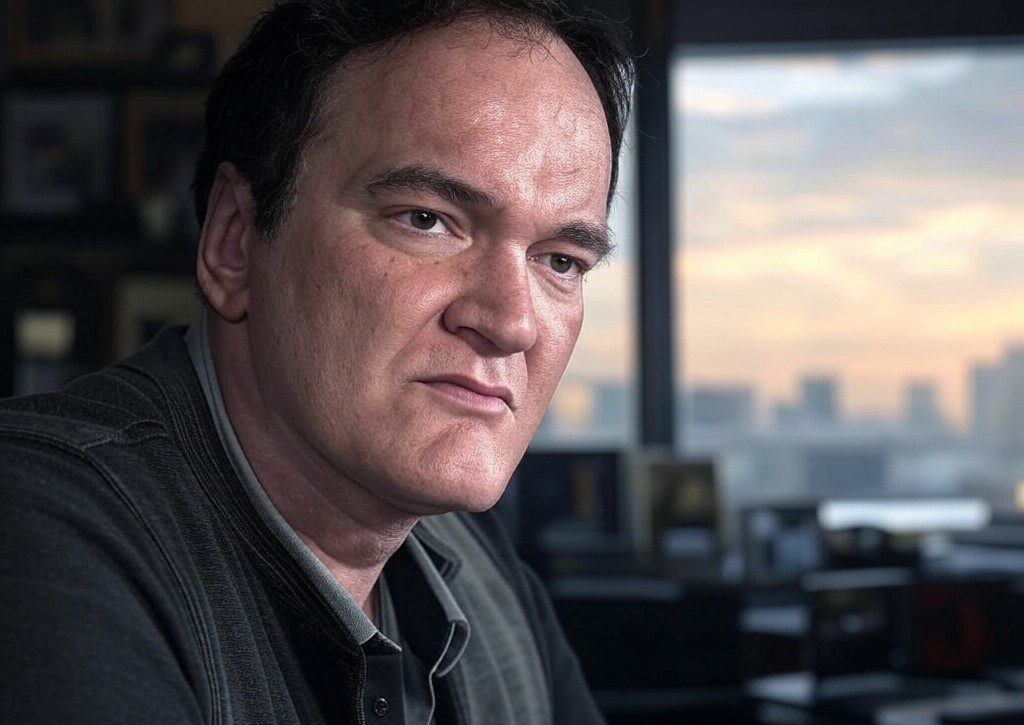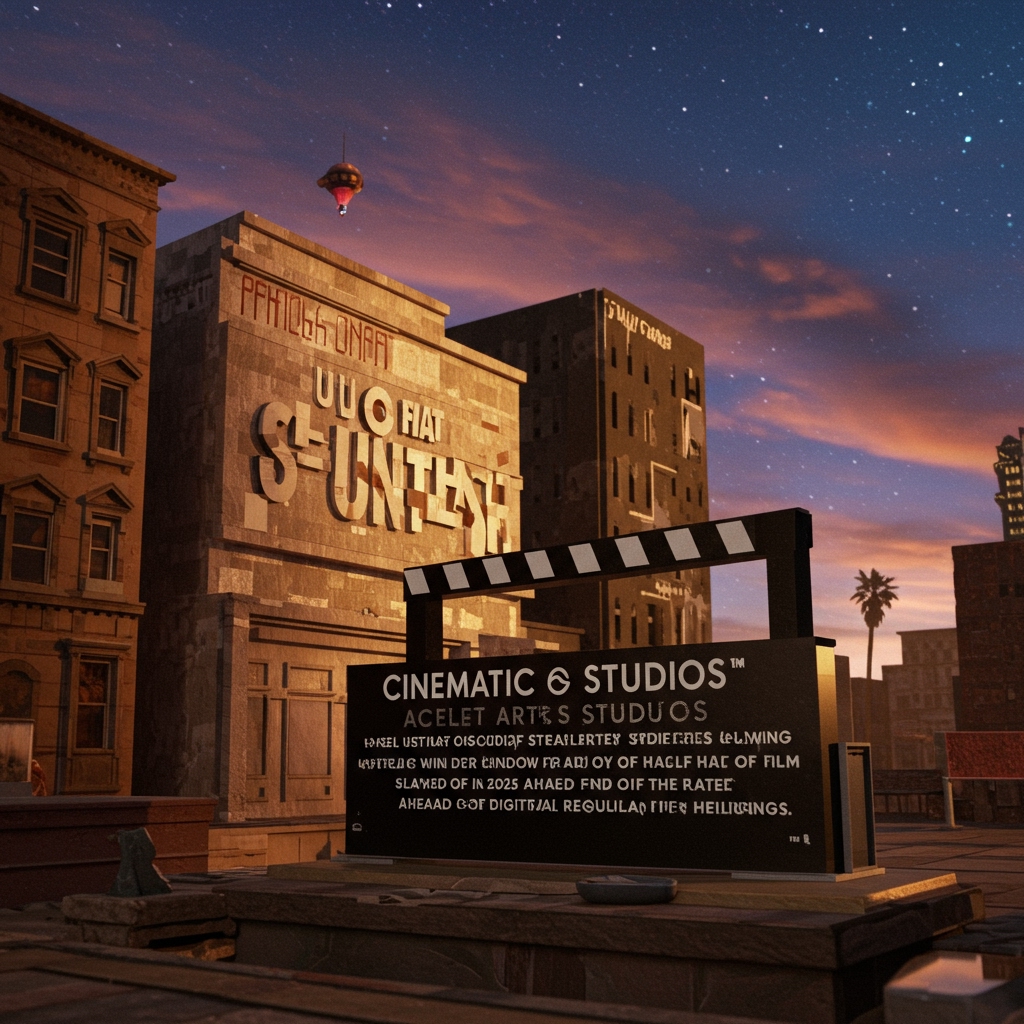Quentin Tarantino’s Bold Critique of Modern Cinema: A Call for Change in the Film Industry
Acclaimed filmmaker Quentin Tarantino has recently voiced his discontent with the current state of the film industry, expressing concerns that resonate with many film enthusiasts and industry insiders alike. Known for his groundbreaking films like “Pulp Fiction” and “Inglourious Basterds,” Tarantino’s career has been marked by innovative storytelling and a passion for cinema that has captivated audiences since his debut with “Reservoir Dogs” in 1993. Now, at 61 years old, he has long suggested that his upcoming 10th feature film will be the last of his illustrious career. However, recent comments indicate that fans may have to wait a while longer for this anticipated project.
During his appearance at the Sundance Film Festival, Tarantino revealed that his next creative endeavor would be a play rather than a film, which prompted him to launch into a pointed critique of the film industry’s current trajectory. He lamented the diminished role of theatrical releases, stating that they have become mere “show pony exercises.” He emphasized the critical role that theaters play in sustaining the film industry, asserting that the essence of what constitutes a “movie” has changed drastically.
The Changing Landscape of Cinema
Tarantino’s remarks reflect a deep-seated frustration with the evolving nature of cinema. His comments included a candid assessment of contemporary film distribution, stating:
“That’s a big f*cking deal pulling [a play] off, and I don’t know if I can. So here we go. That’s a challenge, a genuine challenge, but making movies? Well, what the f*ck is a movie now? What — something that plays in theaters for a token release for four f*cking weeks? All right, and by the second week you can watch it on television. I didn’t get into all this for diminishing returns.”
Tarantino’s discontent isn’t new; he has previously criticized the impact of streaming services and the formulaic nature of superhero films on the landscape of cinema. He pointed out that the theatrical experience has lost its significance, stating:
“I mean, it was bad enough in ’97. It was bad enough in 2019, and that was the last f*cking year of movies. That was a sh*t deal, as far as I was concerned, the fact that it’s gotten drastically worse? And that it’s just, it’s a show pony exercise. Now the theatrical release, you know, and then, like, yeah, in two weeks, you can watch it on this [streamer] and that one. Okay. Theater? You can’t do that. It’s the final frontier.”
His comments raise significant questions about the value of the cinematic experience and whether the industry is neglecting the very essence of filmmaking in favor of quick returns and immediate accessibility.
The Frustration of a Filmmaker
Tarantino’s frustrations stem from his roots as a passionate movie fan before he became a filmmaker. His experiences have shaped his perspective on the importance of preserving the sanctity of cinema. The rise of streaming services and the decline of prolonged theatrical runs have left him feeling jaded about the future of the medium he loves. In recent interviews, he has openly criticized the current Hollywood landscape, specifically targeting the dominance of franchises and the impact they have on the industry. He famously remarked that Marvel movies are formulaic and have contributed to the decline of traditional movie stars.
The director’s pivot to writing a play may be seen as a response to his dissatisfaction with the film industry. He appears to be searching for a medium that allows for creative expression without the constraints imposed by current industry standards. In his own words, he seems to believe that “there needs to be massive changes made across the industry,” and his interest in returning to filmmaking may hinge on the industry’s willingness to evolve.
The Need for Change
While Tarantino’s criticisms highlight significant issues, they also point to a broader need for innovative voices within the industry. The landscape of filmmaking is undoubtedly changing, but it is essential to recognize the potential for growth and transformation. Tarantino’s upcoming play could serve as a catalyst for change, providing a fresh perspective that may influence his eventual return to film.
Despite the challenges facing the industry, it is crucial to acknowledge that many remarkable films have emerged since the release of “Once Upon a Time… in Hollywood” in 2019. Films like “Oppenheimer,” “Everything Everywhere All at Once,” and “Dune: Part Two” have garnered both critical acclaim and commercial success, demonstrating that there is still a vibrant cinematic landscape.
Addressing Oversimplification
While Tarantino’s critique is valuable, it is also essential to recognize that his perspective may oversimplify the complexities of the film industry. The challenges include the increasing prevalence of shortened theatrical releases, reliance on established intellectual properties, and the economic pressures that have forced studios to prioritize profitability over artistic exploration. Thus, it is reductive to claim that 2019 was “the last f*cking year of movies.”
The year 2019 does hold significance as the last year before the COVID-19 pandemic disrupted the industry, but it should also be viewed as a transition point rather than an endpoint. Since then, filmmakers have adapted to new realities, and audiences have continued to seek out diverse and compelling stories.
Conclusion
Quentin Tarantino’s impassioned critique of the film industry underscores a pivotal moment in cinema’s evolution. As he navigates his creative journey, transitioning from film to theater, his reflections on the state of filmmaking resonate deeply with audiences and industry professionals alike. While his frustrations are valid, they also highlight the potential for change and growth in the industry.
As Tarantino prepares to embark on this new chapter with his play, it remains to be seen how his views will influence his eventual return to filmmaking. The industry is indeed facing challenges, but with visionary filmmakers like Tarantino at the forefront, there is hope that cinema can rediscover its magic and continue to captivate audiences in meaningful ways. The future of film may be uncertain, but it is precisely this uncertainty that can lead to innovation and transformation in storytelling. As we await Tarantino’s next move, one thing is clear: his voice will continue to shape the conversation around cinema for years to come.













